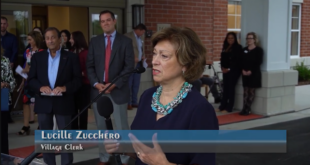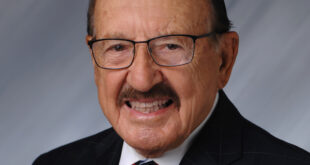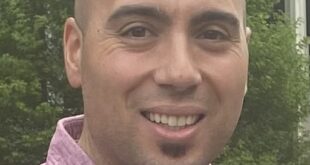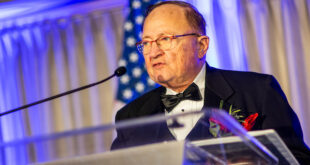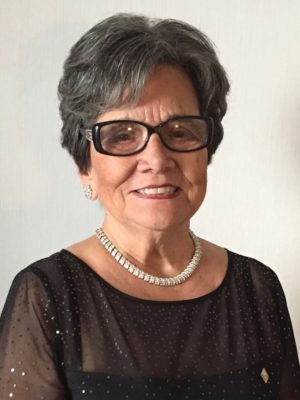 As the second female president of the recently renamed Order Sons and Daughters of Italy in America, she taps into a long history of volunteer leadership.
As the second female president of the recently renamed Order Sons and Daughters of Italy in America, she taps into a long history of volunteer leadership.
Honoring tradition while staying open to unprecedented change is one very tough balancing act. It takes a strong, sure-handed leader to make it work. Enter Vera Girolami, who became national president of the recently renamed Order Sons and Daughters of Italy in America in August after serving for more than a decade in other executive roles. By the way, she’s only the second female president in the 112-year history of the organization, which added “Daughters” to its moniker when she was installed.
For Girolami, breaking gender barriers represents a way of life that dates back to her teens. Within OSIA, she has taken a patient path, leading local and state lodges and holding several vice presidential posts on the way to the top.
If Girolami seeks opportunity, it’s unquestionably the opportunity to serve. This dates to her childhood, as this shoemaker’s daughter learned by watching two generous, grateful Italian immigrant parents in action. Girolami shares with Lou&A what an illustrious lifetime of leadership through service looks like.
Lou&A: Tell us about your Italian background.
Vera Girolami: Both my parents are from Sicily, Rodi Milici in Messina, a very small mountain town and very poor. My father came to America when he was 18; he used to make tanned leather for soldiers and became a shoemaker after he arrived in Ohio. My mother’s family moved to Ohio the same time and yet they never knew each other in Rodi Milici. In fact, both of their last names were Ferrara and they wanted to have a June wedding but the judge wouldn’t let them marry until he made sure they weren’t related.
Lou&A: How did your family prepare you for the role you have today?
VG: My father instilled in me what most Italian families instill in their children: faith, family and culture. I was one of three daughters and he always told us to remember where we came from, to not forget our roots, and what a great country America is. We moved to California when I was young and he opened Model Shoe Repair in Mountain View. He would fix all the shoes for the nuns and priests for nothing; my mom would cook for them. And so I learned how to give back. You never forget that when you’re Italian. It was a very strong lesson to learn, and it’s still strong in me today.
Lou&A: You started your path as a female pioneer not long after you graduated high school. Tell us about that.
VG: I was the first in my family to go to college and one of the first 14 women to attend and graduate from Santa Clara University. I graduated from the nursing school and it was tough. The Jesuits didn’t want us there and the other students didn’t want us there, either. But it made us stronger women. We graduated in 1960, and 12 out of the 14 of us still get together.
Lou&A: When you became president of the organization’s lodge in California, you became the first woman to hold that post. Can you trace your path there?
VG: I worked as an ER nurse for more than 20 years and after I finished, I did a lot of community service work. I was on a number of boards and national president of two other boards. I did a lot of work in Modesto; I was president of a bank board and there was a Sons of Italy lodge there and I joined. After 6 months I was president and did that for eight years. Then I joined the state lodge — the Grand Lodge of California —and eventually ascended to state president in 2005.
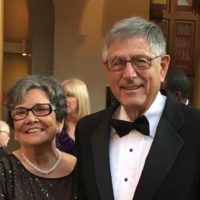
Judge Al Girolami
Lou&A: And from there, how did the national presidency come about?
VG: Someone kept dragging me to national meetings; I became president of our National Alzheimer’s Committee. I got to present a $1 million check for Alzheimer’s research at the Rita Hayworth Gala in New York; that was thrilling. Then I became a national vice president. You start as fifth vice president, then the fourth and so on for four years. I never thought I’d be this old and be president. [Laughs.] But it happened and I became the second woman in history to be national president.
Lou&A: And once again, you made history by becoming president just as the organization added “daughters” to the name.
VG: We changed our name in August. It took a long time. People would say, “How could you belong to an organization called the Sons of Italy especially when it began as Children of Italy?” So it was a good time to make the change — also because Nancy DiFiore Quinn, who is the first vice president, will take over when my two-year term is up in August 2019. For the first time ever, we’ll have back-to-back women presidents.
Lou&A: What has been the most challenging part of the job thus far?
VG: I pray every day I get through these two years without anything disastrous happening. [Laughs.] Really, it’s to keep everybody happy and not have any big problems — and sometimes that happens when you get a lot of Italians together. But my, it’s so exciting. It’s one of the biggest challenges I’ve had because it’s so large — we have 40,000 members — and I’m so far away.
Lou&A: The organization has been undergoing some dramatic changes.
VG: The Sons and Daughters of Italy is the oldest fraternal organization in the U.S. But we’re losing members because many of them are old, some very old. And young people don’t have time to go to meetings; they’re raising children and life sure moves a lot faster now. It’s tough. But we’re working on having at-large members who can join online and don’t go to meetings but get our magazines and enjoy benefits. So we’re trying new things to get into the computer age. To get the message out, you have to be on the Internet.
Lou&A: Why is that a priority for you?
VG: Each president comes into office with a list of things they want to accomplish. I want to focus on communication. We just had a conference call with 18 state grand lodges that have more than 500 members and 10 to 12 subordinate lodges. Almost every president from every state was on. It was a time for them to state their problems and concerns. Hopefully they won’t say at the end of my term, “What can national do for me?” We want to get involved and find out how we can be helpful to them now.
Lou&A: Earlier, you related a deep attachment to your family. It sounds as though your path to the presidency has a strong connection to that.
VG: I never thought I would be national president of this organization. I think my dad would be very proud of what I’ve accomplished. It’s honoring my father’s wish: to remember where I came from.
The above appeared in the March issue of the print version of Fra Noi. Our gorgeous, monthly magazine contains a veritable feast of news and views, profiles and features, entertainment and culture. To subscribe, click here.
 Fra Noi Embrace Your Inner Italian
Fra Noi Embrace Your Inner Italian


